Related Research Articles
The National Academy of Sciences of the Republic of Korea (Korean: 대한민국학술원),is the senior national organization of distinguished Korean scientists and scholars. It was founded to promote learning and research in all areas of sciences by conferring membership and preferential treatment to those who have made outstanding contributions to the advancement of sciences and learning. The Academy consists of 150 Fellows who are selected by their peers for their contributions to the sciences and education.
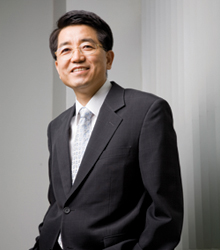
Taeghwan Hyeon is a South Korean chemist. He is SNU distinguished professor in the School of Chemical and Biological Engineering at Seoul National University,director of Center for Nanoparticle Research of Institute for Basic Science (IBS),and an associate editor of the Journal of the American Chemical Society.
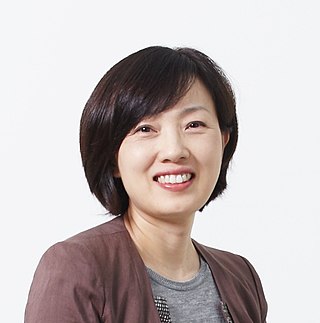
V. Narry Kim is a South Korean biochemist and microbiologist,best known for her work on microRNA biogenesis. Her pioneering studies have laid the groundwork for the biology of microRNA and contributed to the improvement of RNA interference technologies.

Yeom Han-woong is a South Korean physicist. A tenured professor at POSTECH,he has led several research centers for the university and from 2013 in collaboration with the Institute for Basic Science. He is a Fellow of the American Physical Society and has served as vice chairman of the Korean government's first science and technology advisory group for three consecutive terms. With more than 300 publications to his name,his research has been cited over 5,000 times giving him an h-index of 40 and i10-index of 125.

Eunjoon Kim is a professor of KAIST and director of Center for Synaptic Brain Dysfunctions within the Institute for Basic Science (IBS). His current research focuses on molecular mechanisms underlying autism spectrum disorders and synaptic brain dysfunctions. With over 200 publications to his name,his research has been cited over 27,000 times giving him an h-index of 81. He graduated from Busan National University in 1986,received master's degree at KAIST in 1988,received PhD degree at Michigan State University in 1994,and worked at Harvard Medical School as a postdoctoral fellow during 1995-1996. His current research focuses on molecular organization of neuronal synapses and synapse dysfunction-related psychiatric disorders.
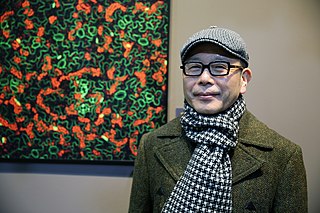
Hong Gil Nam is a South Korean biologist teaching in the Department of New Biology of Daegu Gyeongbuk Institute of Science and Technology and leading research as director of the Center for Plant Aging Research. His research interests include comparative aging in diverse kingdoms,including plant and animals,to reveal aging mechanisms among species,cross-kingdom interaction between plants and animals,and biochemistry at nano and micro levels. He is the founder and former director of the Biological Research Information Center,a member of the Korean Academy of Science and Technology,and has served on the editorial board in Molecular Plant since 2013.

Koh Gou Young is a researcher from South Korea studying organ vasculature and lymphatic vessels with an interest in angiogenesis,lymphangiogenesis,adipogenesis,and cardiogenesis. His research has contributed to the publication of more than 200 journal articles,including multiple publications on how Tie2 deficits are related to sepsis,blood-retinal barrier damage,and an imbalance of intraocular pressure in Schlemm's canal which induces glaucoma.
The Kyung-Ahm Prize is a series of awards presented annually from the Kyung-Ahm Education &Cultural Foundation. Founded in 2005 with a 100 billion KRW endowment by Geum-Jo Song,the award originally had four categories and in addition to the award,laureates are given 100 million KRW to 200 million KRW in prize money;the highest nationally. The foundation also hosts academic lectures by laureates.
The Korea Science Award is an award presented to South Koreans and Korean scientists working in domestic universities or research positions. It is currently jointly presented by the Ministry of Science and ICT and the National Research Foundation of Korea. Research achievements are limited to that of a single project conducted in Korea. Potential recipients go through a several stage review which includes consolation with foreign scholars.
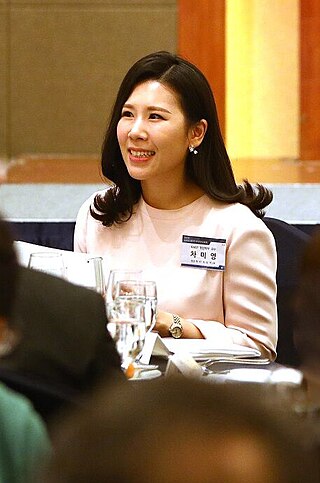
Cha Meeyoung,sometimes known as Mia,is an associate professor at KAIST in the School of Computing and a chief investigator in the Pioneer Research Center for Mathematical and Computational Sciences at the Institute for Basic Science. Her research focuses on network and data science with an emphasis on modeling,analyzing complex information propagation processes,machine learning-based computational social science,and deep learning. In June 2024,she will become the scientific director of the Max Planck Institute for Security and Privacy. She has served on the editorial boards of the journals PeerJ and ACM Transactions on Social Computing.

Kim Doochul is a South Korean theoretical physicist. He was head of the Department of Physics,director of the BK21 Physics Research Division,and professor emeritus at Seoul National University. He was also a fellow and chairperson in the Korean Academy of Science and Technology before becoming the fifth president of Korea Institute for Advanced Study and the second president of Institute for Basic Science. He was a standing trustee with the Asia Pacific Center for Theoretical Physics and a board of Trustee member of the Korean Physical Society.
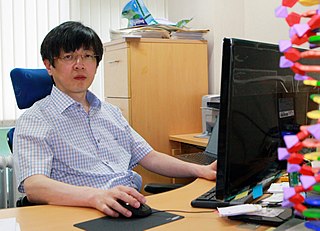
Kim Jin-Soo is a chemist,biologist,and entrepreneur. He was CEO and CSO,ToolGen,Inc.,is a professor in the Department of Chemistry of Seoul National University and director of the Center for Genome Engineering. His research team has developed and improved several types of programmable nucleases,specifically zinc finger nucleases (ZFNs),TAL effector nucleases (TALENs),and RNA-guided engineered nucleases (RGENs). In 2018,he was a Clarivate Analytics Highly Cited Researcher in the cross-field category and in the biology and biochemistry category in 2019.

Oum Sang-il is a Korean mathematician working in graph theory and discrete mathematics. He is a tenured professor in the Department of Mathematical Sciences at KAIST and the chief investigator of the Discrete Mathematics Group in the Pioneer Research Center for Mathematical and Computational Sciences at the Institute for Basic Science. He is known for his work on structural graph theory and in particular for structures and algorithms relating to rank-width,clique-width,and branch-width. He published more than 45 journal papers.

Park Jeong Young (Korean: 박정영),sometimes written as Park,Jeong Y.,is a professor in the Department of Chemistry at KAIST and associate director at the Center for Nanomaterials and Chemical Reactions at the Institute for Basic Science. He is a member of the American Chemical Society and American Vacuum Society among others,an international committee member of Asian Science Camp,and has served on the editorial boards of Scientific Reports,Advanced Materials Interfaces,Journal of the Korean Physical Society,and New Physics.
The Korea Engineering Award is an award presented to South Koreans and Korean engineers working in domestic universities or research positions. It is currently jointly presented by the Ministry of Science and ICT and the National Research Foundation of Korea. Research achievements are limited to that of a single project conducted in Korea. Potential recipients go through a several stage review which includes consolation with foreign scholars. It is given annually to up to four individuals and is presented with the Korea Science Award. Prize money of KRW 30 million is given in addition to the award.
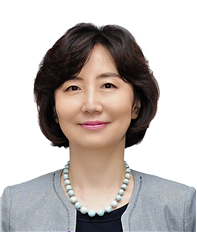
Inhee Mook-Jung (묵인희) is a South Korean scientist who works at the Seoul National University School of Medicine.
Top Scientist and Technologist Award of Korea (Korean: 대한민국최고과학기술인상) is one of two annual awards given in South Korea by the Korean Federation of Science and Technology Societies with the other being a government award for contribution to science and technology promotion. The Top Scientist and Technologist Award of Korea was started in 2003 as the successor to the Science and Technology Award of Korea which was established in 1968. The award is to foster honor and pride and create an environment in which people can focus on research and development by discovering and encouraging scientists and engineers with outstanding achievements who can represent South Korea. While previously given to multiple individuals,from 2003 only person is selected for each cycle. Laureates receive the award and 300 million KRW cash prize.
National Scientist of the Republic of Korea was an award bestowed between 2005 and 2012. The prize was established by the Ministry of Education,Science and Technology to achieve the world's best research results by providing research funds of 1.5 billion KRW per year to a total of 10 scientists. Research prize funding ended when their affiliation changed. Envisioned as the highest scientific award of the nation,it was initially presented to Hwang Woo-suk in 2005 under the name Top Scientist (최고과학자) with an annual funding prize of 3 billion KRW given over three years. Due to his scandal,the award was withdrawn from Hwang,the name of the prize was changed and the research funding was reduced. The reformed award was given in 2006,2007,2010 and last bestowed in 2012. The end of the award coincided with the founding of the Institute for Basic Science with five laureates changing their affiliation to the new institute.
POSCO TJ Park Prize is an annual award presented by the POSCO TJ Park Foundation in four categories;science,education,community development and philanthropy,and technology. The science prize is given to Korean scientists in natural science or engineering. The education prize,community development and philanthropy prize,and technology prize are given to an individual and/or an organization. Only the community development and philanthropy prize is not retricted by nationality. Recommendations are received from June to September,cadidates are screened from October to December,the winners are announced in January and the prize presentation ceremony happens in April.

The L’Oréal Korea-UNESCO for Women in Science Award is a national level award as part of the L'Oréal-UNESCO For Women in Science Awards. It is said to be Korea's most prestigious female scientist award. The award is presented by L'Oréal Korea,Korean National Commission for UNESCO,and Women’s Bioscience Forum. Every year one academic promotion award is presented and up to four fellowships to young scientists under the age of 44 are granted. Endowment is KRW 20 million for the award and KRW 5 million for the young scientists. The award was founded in 2002 and underwent name changes in 2004 and 2017.
References
- ↑ "우수과학자포상 [교육·인력양성사업 > 우수과학자포상]". National Research Foundation of Korea (in Korean). 15 July 2020. Retrieved 21 August 2020.
- ↑ "2019년도 제23회 젊은과학자상(대통령상) 공학분야 수상후보자 추천 안내". Sahmyook University (in Korean). 15 May 2019. Retrieved 7 September 2020.
- ↑ 김상기 (11 December 2001). "서울대 현택환 교수 '젊은과학자상' 수상자 선정". Daily Medi (in Korean). Retrieved 7 September 2020.
- ↑ 오가희 (14 July 2017). "젊은 과학자상 수상자들, 한국 과학계 이끄는 '거목' 성장" (in Korean). Retrieved 7 September 2020.
- ↑ "제5회 젊은과학자상 수상자 선정". KBS News (in Korean). 11 December 2001. Retrieved 7 September 2020.
- ↑ "과학계 신인상 받은 '젊은과학자상 수상자들'…20년 만에 주역으로 우뚝". Korean Academy of Science and Technology (in Korean). 10 August 2016. Retrieved 21 August 2020.